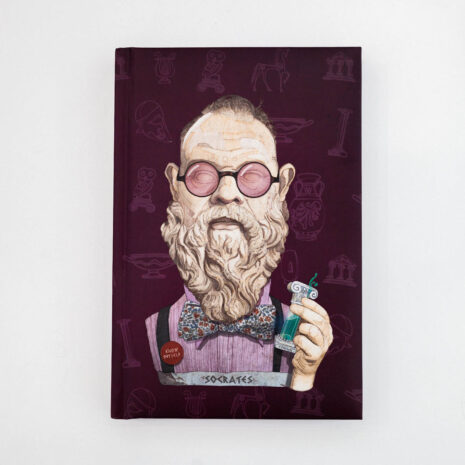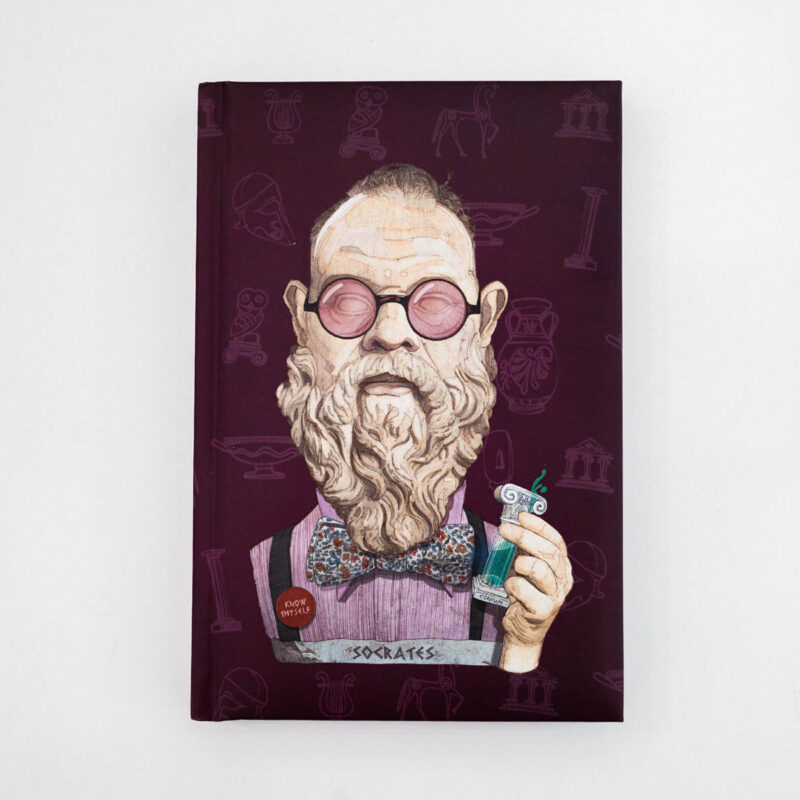NOTEBOOK SOCRATES
12.50 €
Notebook with one hundred blank pages and Socrates on the cover from the “Wise Reinvented” series of collectible illustrations.
The series was created by the Greek illustrator Stavros Damos in collaboration with a Greek company.
Keep your notes, create the designs you want with a pen or pencil and impress everyone with a My Greek Games notebook.
A reason to start a conversation, a reason to stop bothering with technology!
DIMENSIONS: 145 X 215 cm
Description
Notebook with one hundred blank pages and Socrates on the cover from the “Wise Reinvented” series of collectible illustrations.
The series was created by the Greek illustrator Stavros Damos in collaboration with a Greek company.
Keep your notes, create the designs you want with a pen or pencil and impress everyone with a My Greek Games notebook.
A reason to start a conversation, a reason to stop bothering with technology!
DIMENSIONS: 145 X 215 cm
More information about Socrates:
Socrates (Alopecia, Ancient Athens, 470 BC/469[9] – Ancient Athens, 399 BC) was a Greek Athenian philosopher, one of the most important figures of Greek and world culture and one of the founders of Western philosophy.
The sum total of his influence often ranks him among the most influential world figures of all time, along with his student Plato.
He avoided involvement in politics and preferred to make his own independent path. The only exception was when his country called him.
Thus he took part in three campaigns during the Peloponnesian War, in the siege of Potidaea, in Delium of Boeotia in 424 BC
His philosophical researches were attended by many, especially young people, who enjoyed listening to him speak and discuss social issues,
political, moral and religious. Thus a group was formed around him, but it did not constitute a school, because Socrates did not teach systematically, but lectured in every part of the city, with people of every social class and, unlike the Sophists, he did not take money from his students.
Socrates, like Pythagoras, did not leave a textbook, so it is very difficult to determine the exact content of his philosophy.
What is known about Socrates comes mainly from what his students wrote about him, as well as from some writers who focused on the study of his personality.
According to Socrates, God does not philosophize, because he possesses wisdom, but man does, because his existence is finite.
The philosopher was confronted with the Court of Eliaea.
There, in a trial that has been described by many scholars as a travesty, he was accused of disrespecting the gods and corrupting the youth.
The philosopher was sentenced, on the charge, to death.
The essential motive, however, was his rivalry with important men of the time.
During the trial Socrates showed courage and pride, while the announcement of the sentence failed to shake him out of his divine restlessness.























